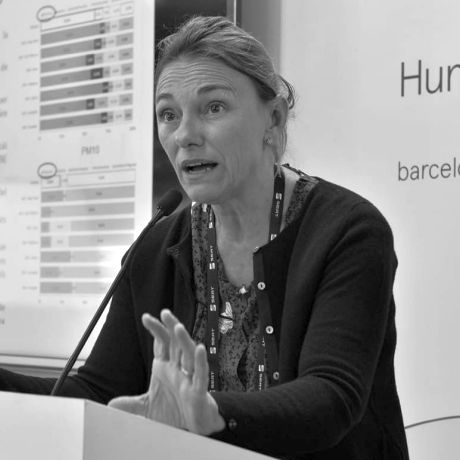The city and the challenge of a just transition
A new energy model for the city
- Dossier
- Jan 23
- 9 mins

Energy is a right. Although local government does not have powers in the major domains of energy regulation, it can influence the core areas of energy management with a view to guaranteeing fair and universal access. It is necessary to prioritize actions to lessen demand, improve efficiency and reduce dependence on fossil resources and energy poverty, protecting the most vulnerable.
Today’s energy situation is quite complicated. We are dependent on finite and geolocalised fossil energy sources and a means of producing electricity based on a maximalist energy auction system, which is wholly unsustainable. The current electricity mix is flawed and the EU’s marginal auction pricing model means that all the energy generated that enters the market is paid for at the price of the most expensive energy, which is usually gas. The war in Ukraine has exacerbated the situation and has raised gas prices to exorbitant levels.
Energy is a very special industry: there are very few competitors, who have sold absolutely everything they produce, while customers cannot opt out. Obviously, the current energy model has economic (high energy prices and limited resources), social (inequality and energy poverty) and environmental (greenhouse gas emissions and air pollution) limits. The system is clearly not working, and as such, nothing is now more urgent than changing this market and making the energy transition a reality.
By energy transition we mean the structural changes needed to move from a system dominated by fossil fuels to one that uses mostly clean and renewable energy sources. This restructuring must drastically change the patterns of energy generation and consumption, and promote sustainable development on the basis of equity and social justice. The transition encompasses technological, environmental, economic, social and cultural aspects, including a more active role for citizens. Securing the future means producing locally and in a clean manner, relying on renewable energies and harnessing all local resources, managing them effectively to be more efficient and spending less for the same services and comfort. In a broader sense, the energy transition also entails a democratisation of energy, as renewable energy sources can be decentralised and benefit all citizens.
Change the model and change it fast
Cities are where most progress in the energy transition can be achieved, as they account for 75% of the world’s energy consumption and 80% of CO2 emissions. They therefore have a key role to play in meeting this challenge. Barcelona aims to be at the forefront of this undertaking and, for years, has been a member of the group of cities promoting innovative sustainable energy initiatives. Now, the city seeks to create its own energy future by simultaneously pursuing energy efficiency, clean and renewable energy production, and a collective mindset that will make this possible. This shift calls for determination, engaging and empowering citizens, rethinking financing solutions, designing new governance models, and understanding urban planning as a tool to move towards a sustainable, low-carbon model. And all this needs to be done quickly.
 Illustration. ©David Sierra
Illustration. ©David SierraAlthough local government does not have powers in the major domains of energy regulation, such as the planning, implementation and operation of infrastructures, it can influence the core areas of energy management. It can work on energy access, with local generation, purchase and supply projects; it can help save energy by applying energy demand management and energy efficiency tools; and it can bear an impact on the knowledge, awareness and spread of a new energy culture. It can also work on environmental education and communication, and on technical consultancy, both within the municipality itself and with citizens; on the creation of its own energy regulations; and on the promotion and implementation of large-scale investments to foster renewable energies and energy efficiency. And it can strive to ensure fair and universal access to energy.
Energy is no longer a sectoral field of work but a structural policy that must bring all associated actions and those responsible for them together under the same goal. Concerted action in all related areas will generate invaluable synergies, with the shared accountability of the private sector and citizens. Energy issues, just like environmental quality, are not limited to municipal borders, but cover a wider scope, at least on a metropolitan level. This calls for the creation of synergies and collaboration between the various authorities.
Energy issues are not limited to municipal borders, but cover a wider scope, at least on a metropolitan level.
But the current challenge is that of the climate emergency, and emergencies call for urgent solutions. They demand decisive and swift action, leaving no one behind. On 15 January 2020, Barcelona City Council presented the Declaration of Climate Emergency, which aims to reduce greenhouse gas emissions by 50% by 2030 compared to 1992 levels and to achieve carbon neutrality by 2050.
Declaring an emergency poses a set of challenges. The first is to normalise the presence of generation facilities in the city and to increase the demand for solar self-consumption installations in buildings, both in the public and private sphere. Currently, 21 megawatt peak (MWp) of photovoltaic solar energy has been deployed in the city of Barcelona, of which approximately 17,000 MWp are private and approximately 4,000 MWp are public. The aim is to have a city where self-generation and self-consumption are widespread. In the case of Barcelona, the plan is to reach a total of 6 MWp of photovoltaic generation in municipal buildings (crèches, cultural and sports facilities, etc.) and in public spaces by 2025. And 35 MWp of photovoltaic generation in the private residential, tertiary and industrial sectors. To achieve this target, there is a need to promote shared self-consumption and help the exponential roll-out of photovoltaic installations.
In 2020, a decree was passed to promote renewable energy generation in construction projects and municipal urban planning. Another important tool is to facilitate investment in this type of installation, making it profitable as soon as possible. One of the means available to local authorities is tax relief. Barcelona offers a 50% reduction on property tax for three years to those citizens who have installed a generation facility in their building, whether residential or tertiary. In the case of installations in industrial buildings, the reduction will correspond to 30% for three years.
Current regulations allow for various management methods for the energy generated. One of them is shared self-consumption, which makes energy generation possible where it makes the most sense, without fear of energy surpluses, because these surpluses can be enjoyed by a nearby consumer. Barcelona City Council is considering making part of the energy it generates available to residential and tertiary consumers in exchange for payment to recover the investment made within the installation’s useful life. This initiative aims to cover part of the consumption of renewable energy generated in the city itself, so that everyone can enjoy self-consumption, regardless of whether or not they have the option of installing panels in their building.
The goal is to develop solar energy on the city’s rooftops as soon as possible. Moment Solar Barcelona, an initiative shared with the Barcelona Installers’ Guild and the Association of Property Administrators, provides residents’ associations with all the information and advice they need to ensure that each home or block of flats can generate the energy they need. It aims to reassure and support the residents’ associations throughout the entire process of installing photovoltaic panels, from the preliminary study to implementation, as well as the processing of available subsidies. Moment Solar Barcelona provides support throughout the entire execution of the self-consumption installation, manages the necessary permits and, if necessary, takes care of the maintenance of the photovoltaic panels.
In a city as densely and compactly built as Barcelona, residential demand represents around 28% of total energy consumption.
Renovating to save money
Producing clean and sustainable energy is just as important as not wasting it. This means also taking action in the field of energy saving, by retrofitting buildings and making newly constructed buildings almost zero-energy. In most existing cities, energy renovation is a key tool for reducing consumption while improving comfort. In the case of Barcelona, the objective is to renovate 10,000 dwellings per year using energy criteria. Currently, some 6,000 are being renovated, but not necessarily according to energy criteria.
In a city as densely and compactly built as Barcelona, with a residential roof area of 62.7 million square metres, accounting for more than half of the city’s total roof area, housing stock is a major energy consumer. Residential demand represents around 28% of total energy consumption. It should also be borne in mind that many of the buildings are more than 65 years old. Many of them were built before the existence of regulations on building quality and insulation requirements. As a result, more than 70% of the city’s housing stock has a very low energy certification (mostly E, F and G ratings).
All this makes renovation a key part of the city’s energy policy, not only to improve the efficiency of homes and living spaces, but also for its proven positive impact on health: the better the state of the home, the better the quality of life and the more comfortable the home. Reducing buildings’ energy needs is also a way to reduce household spending and thus reduce inequalities and vulnerability.
To accomplish the goals, we need to change the way we do things, and that is not always easy or immediate. The climate emergency will not wait.
Heating and cooling grids
Another major course of action is to offer, in certain areas undergoing urban transformation, the most energy-efficient HVAC system possible through heating and cooling grids that harness residual energy resources, saving energy from the grid and reducing greenhouse gas emissions.
There are two heating and cooling grids operating in Barcelona. Districlima, set up in 2002, was the first urban grid created in Spain to provide heating, air conditioning and domestic hot water. It began operating with the licence to use the Fòrum production plant. Currently, it has eighteen kilometres of power line and a hundred connected buildings, and a third production plant will soon be added to reach a million square metres of potential service provision in the Besòs and 22@ area.
The second grid, Ecoenergies, was set up in 2009 and operates with a tender from the city councils of Barcelona and L’Hospitalet de Llobregat. The project includes three production plants. In addition to the two already up and running, the use of residual cold from the Port’s regasification plant will be added. This heat-cooling grid is prepared to supply 15,000 m2 of the Zona Franca and the Port Vell Marina districts. The Zona Franca plant, on which the project is based, also has a biomass plant that generates electricity and heat from pruning waste from the city’s parks and gardens and other forestry waste.
Energy is a right. Prioritising actions to lessen demand, improve efficiency and reduce dependence on fossil resources and energy poverty, while protecting the most vulnerable, are the pillars on which we must take action and make action possible. The city is keen to facilitate the energy transition, but it must be brought to fruition. We have to want to do it. All these changes must be made now. The climate emergency will not wait. To accomplish the goals, we know that we have to change the way we do things, and that is not always easy or immediate. But improvements and benefits will only materialise if we manage to effect collective change and leave no one behind.
The newsletter
Subscribe to our newsletter to keep up to date with Barcelona Metròpolis' new developments




